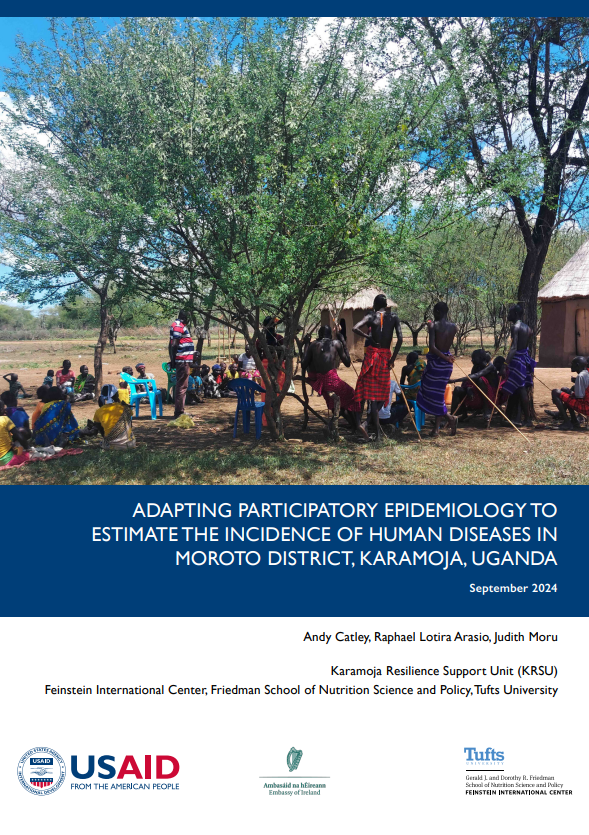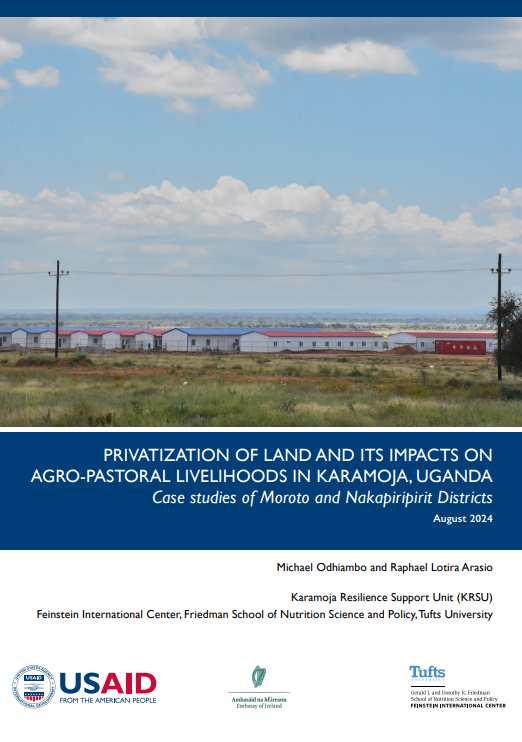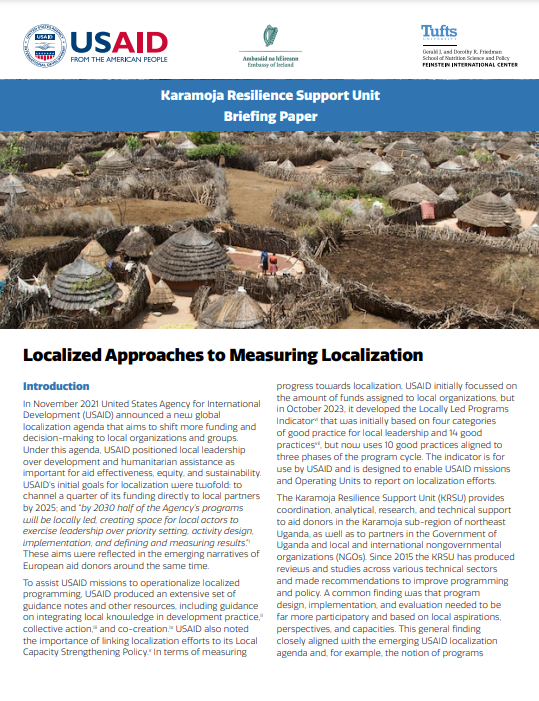KARAMOJA RESILIENCE SUPPORT UNIT
The Karamoja Resilience Support Unit (KRSU) was an initiative of USAID/Uganda aimed at increasing resilience and economic development in Karamoja. The KRSU worked closely with the Karamoja Development Partners Group (KDPG) to provide reviews, assessments and analyses of development and humanitarian programs in Karamoja, and related policy issues, with a focus is on translating evidence and knowledge into practice. The project also provided coordination support to the KDPG and Ministry of Karamoja Affairs, and various regional and district-level bodies in Karamoja. The project was implemented by the Feinstein International Center, Friedman School of Nutrition Science and Policy, at Tufts University, with offices in Kampala and Moroto, Uganda, and ran from 2015 to 2024.
This website archives the KRSU publications covering a range of development and humanitarian issues in Karamoja, during a period when the region experienced COVID-19 restrictions, a return of conflict and humanitarian crisis. The website also provides access to KRSU policy and evidence briefs, the Pastoralism and Policy Training Course, and papers from the international conference Pathways to Resilience in the Karamoja Cluster, held in Moroto in May 2019.
OUR WORK
What is working and why?
Which approaches need reshaping?
What can be scaled up, and where is the evidence to support this?
NEW WORK

Adapting participatory epidemiology to estimate the incidence of human diseases in Moroto District, Karamoja, Uganda
This study explored the use of participatory epidemiology (PE) to estimate the annual incidences of human diseases in Karamoja, Uganda, with emphasis on diseases associated with water. Adapted PE methods were used successfully to estimate disease incidences in young children and adults, and revealed a rich knowledge on the clinical signs and causes of diseases. The report concludes that PE could be useful for overcoming some of the spatial limitations of the health surveillance system in Karamoja, and the temporal limitations of bi-annual food security and nutrition assessments.

Privatization of Land and its Impacts on Agro-Pastoral Livelihoods in Karamoja, Uganda: Case studies of Moroto and Nakapiripirit Districts
This report presents the findings of a review of land issues in Karamoja, with a particular focus on trends in privatization of communal lands and its impacts on agro-pastoral livelihoods.

Localized Approaches to Measuring Localization
In November 2021 United States Agency for International Development (USAID) announced a new global localization agenda that aims to shift more funding and decision-making to local organizations and groups. Under this agenda, USAID positioned local leadership over development and humanitarian assistance as important for aid effectiveness, equity, and sustainability.